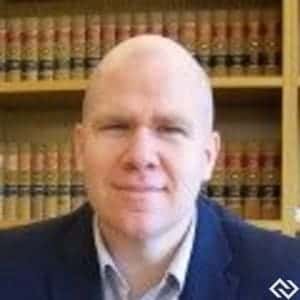Business Ethics Expert Opines on Fraudulent Mortgage Scheme
Updated on
This case involves a class action suit against a large financial entity that allegedly committed fraudulent practices in connection with its home mortgage loan servicing business. The defendant devised a scheme to deceive homeowners who were behind on their mortgage payments into believing they had to pay thousands of dollars in unlawfully marked-up fees. Additionally, they used a wholly-owned subsidiary that performed informal appraisals via broker price opinion (BPO) to engage in its scheme to disguise hidden, marked-up fees so that it could earn additional, undisclosed profits. A business ethics expert was sought to opine on the ethical implications of self-dealing between a parent company and a subsidiary.
Question(s) For Expert Witness
1. Please describe your experience as it relates to mortgage-related business ethics.
2. Are you familiar with broker price opinions (BPO) and how they work?
3. Are you able to discuss the ethical implications of self-dealing between a parent company and a subsidiary?
Expert Witness Response E-098578
 I have degrees from Harvard College, Stanford Law School, and Princeton's History Department. I have published two dozen articles in academic and popular journals on financial regulation and central banking. I regularly consult with the government, lawyers, and industry members on related topics. I also teach courses for undergraduates, MBAs, and executives at Wharton on topics ranging from business ethics in the financial industry to financial regulation. I am familiar with broker price opinions (BPO) and how they work, and I am able to discuss the ethical implications of self-dealing between a parent company and a subsidiary. I lecture regularly on this topic and have published a book on central banking at the Federal Reserve System which includes a chapter on ethics and self-dealing in banking. Before becoming a professor, I worked in private legal practice, consulting on similar cases in consumer lending.
I have degrees from Harvard College, Stanford Law School, and Princeton's History Department. I have published two dozen articles in academic and popular journals on financial regulation and central banking. I regularly consult with the government, lawyers, and industry members on related topics. I also teach courses for undergraduates, MBAs, and executives at Wharton on topics ranging from business ethics in the financial industry to financial regulation. I am familiar with broker price opinions (BPO) and how they work, and I am able to discuss the ethical implications of self-dealing between a parent company and a subsidiary. I lecture regularly on this topic and have published a book on central banking at the Federal Reserve System which includes a chapter on ethics and self-dealing in banking. Before becoming a professor, I worked in private legal practice, consulting on similar cases in consumer lending.
About the author
Victoria Negron
Victoria Negron has extensive experience in journalism and thought leadership in the legal space, with a background crafting content, whitepapers, webinars, and current event articles pertaining to the role of expert witnesses in complex litigation matters. She is a skilled professional specializing in B2B product marketing and content marketing. Currently, she serves as an Enterprise Product Marketing Manager at Postman, and previously held the position of Technical Product Marketing Manager at Palantir Technologies, where she developed her skills in launch strategies, go-to-market strategy, and competitive analysis.
Her expertise in content marketing was further refined during her tenure at the Expert Institute, where she progressed from a Marketing Writer to Senior Content Marketing Manager, and eventually to Associate Director of Content & Product Marketing. In these roles, she honed her abilities in digital marketing, SEO, content strategy, and thought leadership.
Educationally, Victoria holds a Master of Business Administration from the University of Florida - Warrington College of Business and a Bachelor of Arts in Literature, Art, and Hispanic Studies from Hamilton College. Her diverse educational background and professional experience have equipped her with a robust skill set in product marketing, content development, and strategic marketing initiatives.
Subscribe to our newsletter
Join our newsletter to stay up to date on legal news, insights and product updates from Expert Institute.
Sign up nowFind an expert witness near you
What State is your case in?
Subscribe to our newsletter
Join our newsletter to stay up to date on legal news, insights and product updates from Expert Institute.



